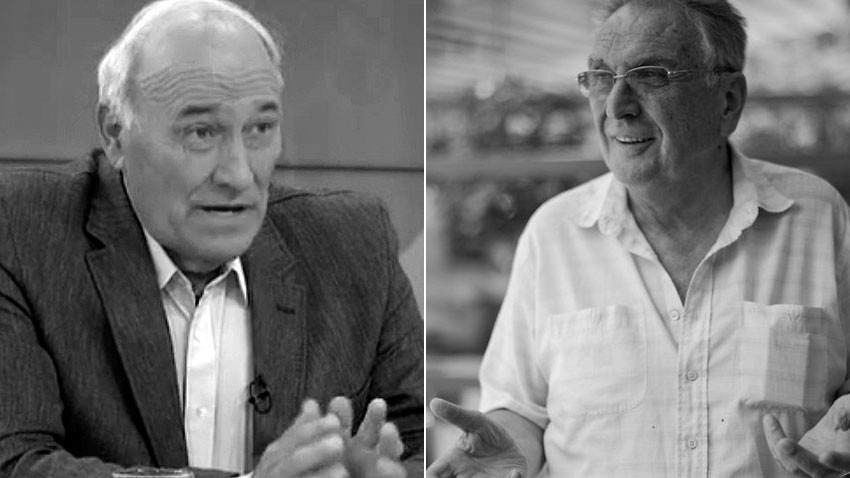Sofia has approved a list of conditions Skopje must fulfill, in order to begin negotiations for integration in the EU. Bulgaria called on North Macedonia to cease hate speech in state funded media. According to the Good Neighbor Agreement signed between the two countries two years ago, Bulgaria and North Macedonia voice commitment to make efforts in this direction. Radio Bulgaria asked two journalists regarded as doyens in the Macedonian issue-Bulgarian Kosta Filipov and Vladimir Perev from North Macedonia how this can be achieved:

The public media in North Macedonia and Bulgaria should open correspondence points. The last correspondence point of the Bulgarian National Radio in Skopje was closed in 2011, Kosta Filipov says. I locked the door and threw the key in the waters of Vardar River. This shows the lack of interest in both societies and countries in each other. For me, the lack of interest from North Macedonia’s side is inexplicable, because after all, Bulgaria has been an EU and NATO member for many years. North Macedonia is the country which strives towards EU and NATO accession and this country should show interest-how to walk on this path, be aware of the possible mistakes and successes and know the main problems it should solve in this process. Recently journalists from North Macedonia and Bulgaria held a meeting in Ohrid, which was financed by the Bulgarian Ministry of Foreign Affairs. The European Parliament elections held in Bulgaria earlier this year were given as an example by our colleagues from North Macedonia-no media from North Macedonia sent correspondents to Sofia, but at least 20 journalists from this country covered the European elections in Athens.
I am thinking about common media, web sites, newspapers and magazines. I would even go a bit further-to create media where the Bulgarian authors will write in Bulgarian and the authors from North Macedonia will write in Macedonian noting that this is a Bulgarian dialect, Vladimir Perev told Radio Bulgaria. When we write in our own language, we would be able to overcome any kind of language barriers. However, in this case things boil down to politics and the recognition of the language. I know and I can guarantee that in North Macedonia there will be great fuss that this bilingualism will sink the Macedonian language. I am sure that the majority of all 7 million Bulgarians and their web sites, texts and historical articles and broadcasts will deafen the media in North Macedonia. It is always like this-the smaller loses and the one with weaker literature, script and language would lose its positions.
We can always find money to raise people’s awareness on both sides of the border about each other, Kosta Filipov went on to say. We do not know each other well yet. I am talking about the professional journalists as well. Their job is to know the neighbors well and then get involved in global and European topics. There is enough money. It is a matter of political will and effort to change the current situation.
The two countries should encourage common information activities, Vladimir Perev contends. For instance, the subsidies paid in Bulgaria and North Macedonia for advertising useless TV shows that satisfy the personal vanity of the politicians should be allotted towards a common deed instead.
There is no hate speech between us when we do not act as a second commission on historical matters and when we do not turn and do not want to look like avatars of Boyko Borissov and Zoran Zaev, Kosta Filipov adds. It depends on us whether we will know each other better and trust each other more. In December this year North Macedonia will become a NATO member. Tomorrow, the soldiers of North Macedonia and Bulgaria will participate in joint missions and they will have to protect each other. How they will do that, if they do not trust each other?
It is unrealistic to expect that hate speech will be eradicated completely, Vladimir Perev says. The whole talking with offensive tone and personal attacks-now I am listening the talking against Ekaterina Zahariev – this is all part of the culture implemented in North Macedonia after 1945. This can’t be abolished with a single act. I believe that the closer ties, the bigger number of Macedonian students in Bulgarian universities, the cooperation between the journalists and the common media broadcasts would have positive influence, although some people will always voice different opinions.
English version: Kostadin Atanasov
Bulgaria has emerged from a long political slumber – 81 days after the sixth early parliamentary elections, the National Assembly elected the country's 105th government. A total of 125 MPs supported the coalition cabinet, formed through an agreement..
The new plenary session of the 51 st National Assembly began with declarations about the priorities of the political parties. For GERB-SDS, the main task is the formation of a regular government and a stable ruling majority, MP Toma Bikov said. He..
GERB-SDS terminates the negotiations for the formation of a regular government due to the refusal of Democratic Bulgaria to support a GERB candidate for prime minister, said GERB. ''No agreement was reached with Democratic Bulgaria on the..

+359 2 9336 661
